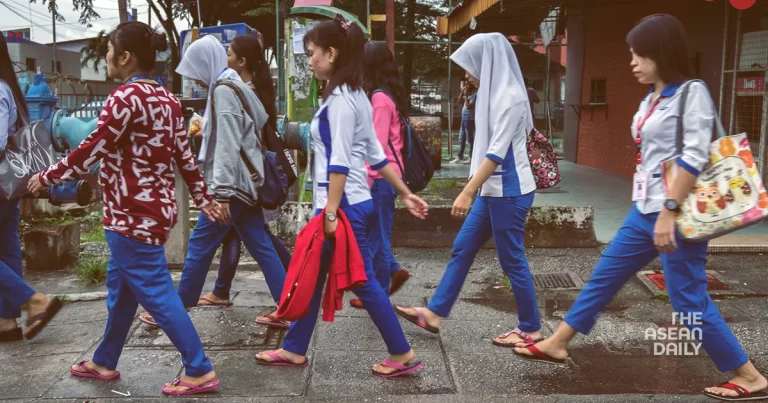24-6-2024 (KUALA LUMPUR) In a move that spotlights the hurdles facing Malaysia’s economic reform agenda, the politically influential private entity Bestinet Sdn Bhd is poised to receive a fresh three-year contract to manage the country’s foreign workforce intake, according to government sources.
The proposed new arrangement comes after the Home Ministry’s initial plan, reported last month, to replace Bestinet’s proprietary IT system that manages the intake of migrant workers. However, the extension of Bestinet’s contract will come with strict conditions, setting the stage for behind-the-scenes political maneuvering between the government and the powerful Bestinet lobby.
According to sources, Bestinet will be required to surrender control of its payment systems under the firm’s Foreign Workers Centralised Management System (FWCMS). Specifically, the company must hand over its Swift code, alphanumeric ciphers used by banks globally for international fund transfers, and other protocols in the payment system employed for processing migrant workers into Malaysia.
The Home Ministry, which supervises the migrant labour recruitment system alongside the Human Resources Ministry, informed Bestinet of these new conditions last week. The government officials stated that the fresh three-year arrangement would only be finalized after the company accepts the new terms.
While a Bestinet company executive declined to discuss the matter, local and foreign labour activists noted that the company has already signaled its continued role to recruitment agents in countries like Nepal, Myanmar, and India, asking them to update their licenses before mid-June to qualify as employment representatives under Malaysia’s FWCMS platform.
Charles Santiago, a former elected Member of Parliament and part of a government-private sector working committee involved in reforming the migrant labour recruitment system, expressed disappointment. “That Bestinet has received an extension is not (a) secret in the (migrant labour) market, and it is disappointing because the country is being held to ransom by continuing with the company’s platform,” he said.
Bestinet’s FWCMS concession, the sole platform used by the country’s Immigration Department for visa applications from 15 labour-exporting countries since 2013, has long attracted domestic and international criticism over allegations of rampant corruption and the exploitation of impoverished overseas recruits.
The Anwar Ibrahim administration had initially planned to replace the 11-year concession with a new IT portal aimed at making the foreign labour recruitment process cheaper, more transparent, and minimizing third-party involvement. However, this plan faced severe pushback from Bestinet’s top management, including its founder Mohamed Amin Abdul Nor, and labour agents aligned with the company, who tapped their connections with Malaysia’s political elite and segments of the country’s royal households to secure a fresh multi-year extension.
Political operatives in Anwar’s inner circle acknowledged the intense lobbying the prime minister and the Home Ministry faced.
The government’s big test now is whether Bestinet will accept the new terms under the proposed three-year extension or once again turn to its politically powerful patrons to pile pressure on the administration and further undermine the economic reform agenda.
Labour activists speculated that the move to demand Bestinet’s Swift code could be aimed at addressing widespread problems associated with the recruitment of workers from Bangladesh, one of Malaysia’s main sources of foreign labour. The official fee for a single Bangladeshi recruit is roughly RM4,500 (US$955), but in reality, each migrant worker pays nearly four times that amount due to a convoluted recruitment process that also involves forcing employers to pay hidden fees.
Before becoming prime minister after an inconclusive general election in November 2022, Anwar and his coalition partners in the Pakatan Harapan (PH) alliance had been highly critical of Bestinet’s stranglehold on migrant labour intake, granted by the previous government led by now-jailed former premier Najib Razak.
However, pushing through reforms has been an uphill struggle for Anwar due to Malaysia’s messy politics. He was forced to forge an alliance with the United Malays National Organisation (UMNO) and other unlikely political bedfellows to form a unity government, leading to compromises that trump the reform platform.
“The country is being held hostage by the players in the foreign labour recruitment system, and unless the government gets tough, (Mr Anwar’s) reforms will go nowhere,” Santiago said.
Malaysia’s reliance on foreign labour, combined with undocumented migrants, has created distortions in the economy, such as suppressing wage growth and hurting lower-income Malaysians.
The migrant labour ecosystem has also tarnished Malaysia’s international standing due to collusion among politicians, civil servants, enforcement agencies, recruitment companies, labour brokers, and exploitative employers. This has resulted in Malaysia being listed with countries like China and North Korea for its poor progress in eliminating human trafficking by the United States State Department.
Malaysia’s current Tier 2 ranking in the US Trafficking in Persons (TIP) Report is precarious, and labour activist Andy Hall warned that its “systemic inability to meaningfully combat labour trafficking, ensure remediation of victims and accountability of perpetrators warrants its immediate downgrade to Tier 3 in the upcoming 2024 US Department of State TIP Report.”




